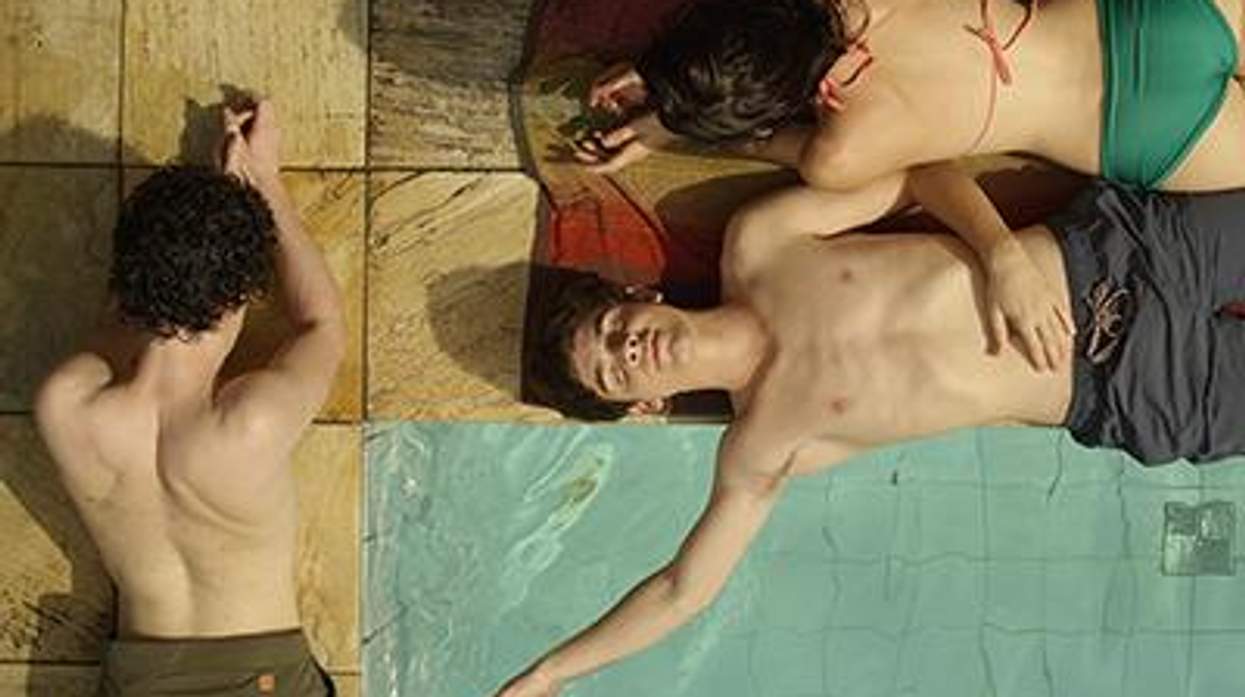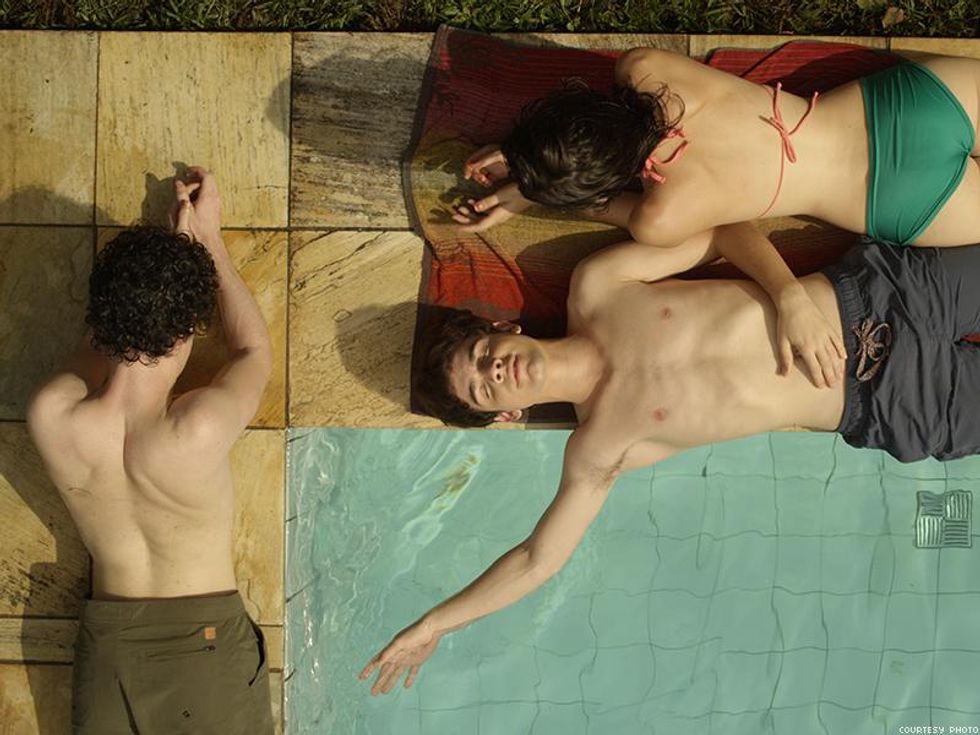
On the surface, Brazil's entry into the 2015 Academy Awards' Best Foreign Language Film category doesn't resemble the stereotypical foreign-film nominee. The Way He Looks isn't examining the ravages of war, highlighting a forgotten piece of history, or painting a quaint picture of impoverished people finding joy in impossible circumstances. And it's distinctly lacking in any nationalistic pride. In fact, if you can't recognize Portuguese, you might not even realize that it's set in Brazil. What the film is, though, is something we haven't really seen before in any country: a coming-of-age movie about a teen who's not only gay but also blind.
The Way He Looks is a feature-length adaptation of Daniel Ribeiro's 2010 short film I Don't Want to Go Back, and it invites the audience to see the world through the eyes of high school student Leo, who can't see the world through his own. Dealing with bullies at school and an overprotective mother at home, Leo finds solace in his best friend, Giovanna, as he struggles to assert his own independence. However, the arrival of a new student named Gabriel awakens new feelings in Leo and turns his world upside down. Ghilherme Lobo gives a moving performance as Leo, alternately vulnerable and driven as the character finds his way through the tumult of a first love and tries to direct the course of his own life. The film has garnered accolades and awards since its premiere at the 64th Berlin International Film Festival, including winning the Teddy Award for best LGBT-themed feature film.
To appreciate how important a film like this is, you need to realize how rare characters like Leo actually are. Since GLAAD began tracking the depictions of people with disabilities in our 2010 Where We Are on TV report, we have found that, at most, only 1.4 percent of the regular characters on broadcast television were portrayed as living with a disability covered by the Americans With Disabilities Act. In reality however, the U.S. Census found that 19 percent of Americans (around 57 million people) are living with a disability, with more than half reporting that the disability was "severe." Based on these finding, depictions of people with disabilities on television would have to increase almost 20-fold to accurately represent our society.
As you can imagine, it's even more rare for a character to be depicted as both LGBT and living with a disability, as much of popular culture still gravitates towards keeping people in singular categories and boxes: "the gay guy," "the Asian guy," "the deaf guy," and so on. There are a few TV standouts though, like Dr. Arizona Robbins on ABC's Grey's Anatomy -- a pediatric surgeon and lesbian who uses a prosthetic leg -- or ER nurse Thor Lundgren on Showtime's Nurse Jackie, who is diabetic and uses a prosthetic eye (as actor Stephen Wallem does in real life), but they are the exception rather than the rule. And as rare as characters like these are on television, they're almost nonexistent in film.
The Way He Looks is a film that recognizes that none of us fit into those neat little boxes. Every person lives at the intersection of multiple identities, some of which have been given to us by society and some of which we have claimed for ourselves, and there is great storytelling potential in examining this truth. In fact, the film highlights the significant overlap between being LGBT and being differently abled. Leo's blindness and attraction to other guys both make him different from most of his peers and even his own family, leading to feelings of alienation. Yet those same differences also give him a unique perspective on the world and help him find the strength to define himself and strive for independence. Certainly, both LGBT and differently abled audience members will find a lot they can relate to on both counts, not to mention the audience that will appreciate a film whose story more closely resembles their own.
However, it's just as important for a wider audience to see films like these. Storytelling is one of the greatest agents of social change because it gives people the chance to look at the world from someone else's perspective, while also illustrating an inherent shared humanity. These stories foster greater understanding, and with that comes greater acceptance and support for those we might have once considered "different." Particularly when it's done with as much charm and warmth as The Way He Looks, a film like this is worth paying attention to.
MATT KANE is the director of entertainment media at GLAAD.





































































Charlie Kirk DID say stoning gay people was the 'perfect law' — and these other heinous quotes